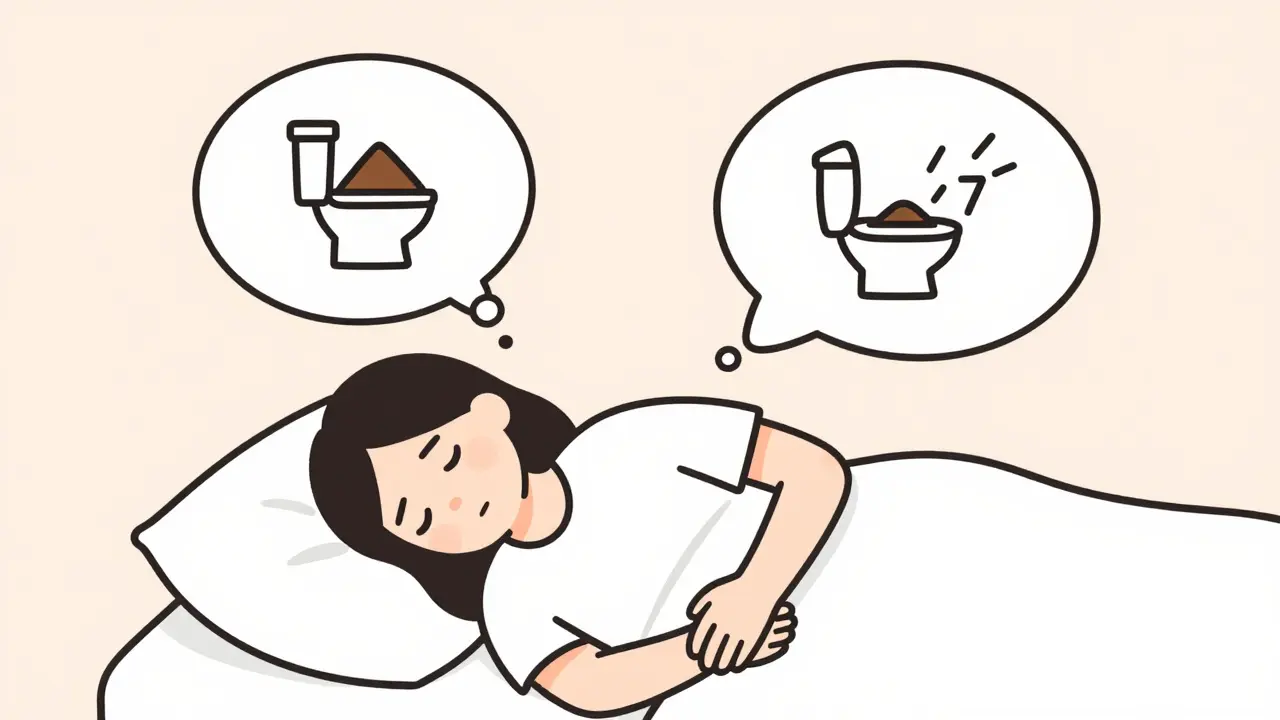IBS Symptoms: What You’re Probably Feeling
If you’ve ever been hit with sudden stomach cramps, a rush to the bathroom, or a bloated belly that won’t quit, you might wonder if it’s IBS. Irritable bowel syndrome (IBS) is a gut‑brain mix that shows up as a handful of recurring symptoms. The good news? Most people manage it with a few lifestyle tweaks and the right advice.
First up, abdominal pain. It’s usually a cramp‑like ache that eases after you poop. The pain can sit in the lower belly, but sometimes it moves around. It’s not sharp like an ulcer, and it often comes and goes throughout the day.
Typical IBS Triggers
Everyone has foods that stir up their gut, but IBS folks notice certain patterns. Fatty meals, caffeine, alcohol, and artificial sweeteners can set off a flare. Stress is another big one—think of a deadline or a nervous flight, and you might feel the gut react within minutes.
Fiber is a double‑edged sword. Soluble fiber (oats, apples) often helps, while too much insoluble fiber (whole‑grain wheat, nuts) can make bloating worse. Keep a short food journal for a week; you’ll spot the culprits faster than guessing.
Other Common Signs
Beyond cramps, IBS often brings a constant feeling of urgency—like you need to go right now, even if there’s nothing there. Diarrhea‑type IBS (IBS‑D) gives loose stools, while constipation‑type IBS (IBS‑C) makes stools hard and painful. Some people swing between the two; that’s called mixed IBS (IBS‑M).
Bloating and gas are almost always on the list. You might notice your pants feeling tighter by the end of the day, or a noisy tummy in quiet meetings. While uncomfortable, the extra gas isn’t dangerous—just annoying.
Fatigue can creep in too. Constant gut upset can drain your energy, especially if you’re waking up for bathroom trips at night. It’s a cycle: discomfort disrupts sleep, and poor sleep makes the gut more sensitive.
When to see a doctor? If you notice blood in stool, unexplained weight loss, or symptoms that don’t improve after a few weeks of diet changes, get checked. Those signs could mean something else, like inflammatory bowel disease.
Managing IBS starts with small steps. Try a low‑FODMAP diet for a few weeks—those are foods that are harder for the gut to break down. Pair it with regular meals, stress‑relief habits (deep breathing, short walks), and enough water. If symptoms stay stubborn, a doctor can suggest prescription meds or fiber supplements.
Remember, IBS isn’t a one‑size‑fits‑all condition. What works for a friend might not work for you. Keep notes, experiment gently, and don’t hesitate to ask a healthcare professional for help. Your gut will thank you for the attention.
IBS-Mixed: How to Manage Alternating Constipation and Diarrhea
IBS-Mixed causes alternating constipation and diarrhea, making daily life unpredictable. Learn how diet, stress management, and smart medication use can reduce symptoms and improve quality of life.
Read moreTummy Ache vs Bloating: How to Tell the Difference and Feel Better Fast
Learn the real differences between tummy ache and bloating, what’s causing them, fast relief that works, and when to see a doctor. Clear checklists plus FAQs.
Read more
